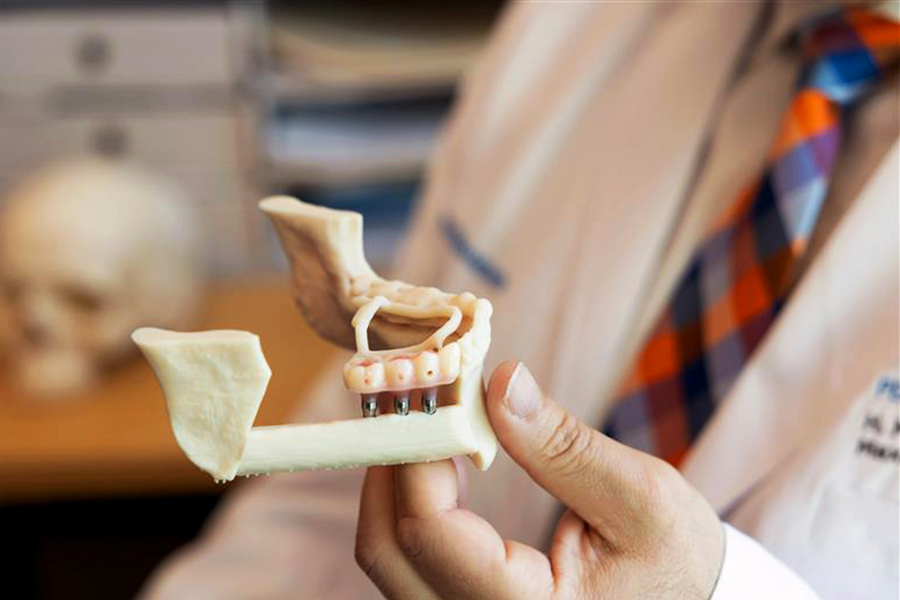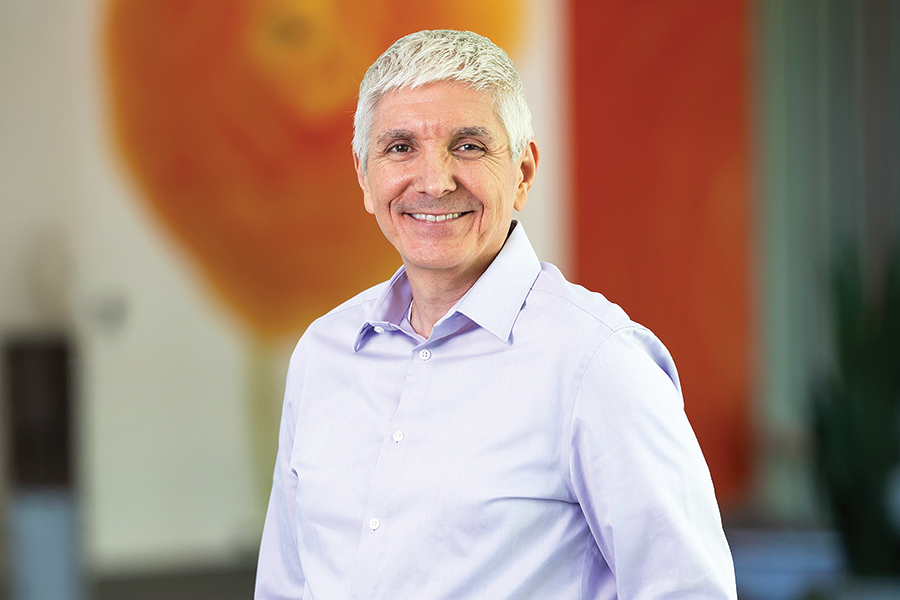A landmark TPMG program provides comprehensive care for patients with inflammatory bowel disease.
August 12, 2025
For some, a diagnosis of inflammatory bowel disease (IBD) may come as a surprise. For others, it may be a relief to finally have a name to wrap around increasingly common bouts of belly pain, cramping, and bowel irregularity. For most, there will also be a distressing realization: I have a chronic disease that is difficult to treat and cannot be cured.
For these patients, their “IBD-ologist” — a term coined by gastroenterologists who specialize in the disease — may become the equivalent of a primary care provider. This is the physician they will contact when a new vaccine is recommended. Or when they are thinking about having a child. Or when they develop a new health problem and aren’t sure whether it is related to their IBD.
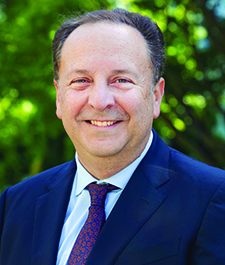
Fernando Velayos, MD
It was this depth and complexity that initially drew Fernando Velayos, MD, to this field of medicine. It was also what led him, in 2017, to join The Permanente Medical Group to serve as the director of the inaugural Kaiser Permanente Northern California Inflammatory Bowel Disease program.
“This is one of the unique areas of gastroenterology where you can have a long-term relationship with your patients,” Dr. Velayos says. “You get to know them well because you take care of them for so many years. They get married, have children, change jobs, and as their physician, you are trying to do everything you can to get them to these milestones.”
A challenging disease
IBD is a term that encompasses a group of diseases that develop in the intestines; it is estimated to affect about 1% of the U.S. population. Ulcerative colitis and Crohn’s disease — the two most common types of IBD — cause similar symptoms but affect different areas of the bowel. Ulcerative colitis is marked by ulcers that develop along the lining of the colon and rectum, while Crohn’s disease develops in the deeper layers of the digestive tract, and most commonly affects the small intestine.
These diseases are most often diagnosed in people between the ages of 15 and 35, but they can affect anyone at any age. Children have been diagnosed at age 6 or younger; adults can initially be diagnosed in their 60s — or even later.
As in many areas of medicine, treatment for IBD is both an art and a science. There are currently no biomarkers to guide medication choices, and there is no way to predict if a patient will respond to a specific medication, or for how long. Surgery may be necessary to remove blockages and parts of the intestines.
Even when the disease itself is under control, patients can develop side effects and complications, including malnutrition and inflammation of the skin, eyes, and joints. People with IBD also are at increased risk for colorectal cancer.
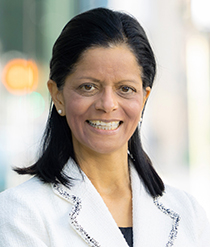
Smita Rouillard, MD
These ongoing challenges make continuity of care and physician expertise paramount to patients living with the disease. The IBD program that Dr. Velayos established in KP Northern California is nationally recognized for its success in both areas.
“Dr. Velayos puts the patient at the center of everything the IBD program does,” says TPMG Associate Executive Director and gastroenterologist Smita Rouillard, MD. “This means combining clinical expertise with innovative treatments and cutting-edge research — all while staying deeply connected to what matters most to patients, and tailoring their care accordingly.”
Before Dr. Velayos created the innovative regional IBD program, care for patients with IBD in KP Northern California lacked a unified framework.
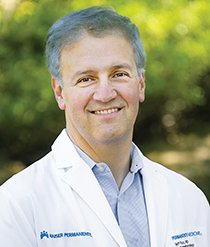
Jeffrey Fox, MD
“Each medical center provided good care on an individual level, but there was no coordinated regional effort to standardize that excellence,” says Jeffrey Fox, MD, TPMG co-chair of gastroenterology and associate director for the KP Northern California Gastroenterology Fellowship program. “We were missing a leader looking at the big picture, someone who understood what we could accomplish because of our size, and because of the range in disease severity of the patients we see.”
Establishing an internal referral system
Dr. Velayos came to TPMG from the University of California, San Francisco, where he served as co-medical director of the university’s Center for Crohn’s and Colitis. He had become familiar with TPMG and its gastroenterologists through conferences and shared patients. And he knew that KP Northern California’s care model offered a unique opportunity to build a landmark program.
“What attracted me to TPMG,” he says, “were the advantages of its integrated system. As physicians, we’re able to design what we believe is the best care for our patients.”
Leveraging TPMG’s strengths, Dr. Velayos established an internal referral system — a regional hub-and-spoke clinical network — to help ensure that every patient with IBD receives expert-level care from a TPMG physician close to home. This network now includes 20 IBD specialists spread across KP Northern California, who personally care for the most complex patients while also providing clinical support to the region’s more than 140 general gastroenterologists.
“The hub-and-spoke model gives us a team with a deep bench to treat the entire population of IBD patients,” says Dr. Velayos. “This helps our patients because we are elevating care throughout the region. We don’t have to send patients to just one center, because every center is elevated.”
The IBD specialists meet weekly to review their most complex cases and enhance the quality and consistency of local IBD care. They develop and oversee the implementation of regional quality initiatives that enhance care coordination. And they work closely with a group of specialty pharmacists who oversee patients’ treatment initiation and dose optimization.
“Our partnership with specialty pharmacists gives patients an additional layer of support and another trusted point of contact for questions and guidance,” says Dr. Velayos.
A forward-thinking advisory board
At the hub of the IBD program sits the Crohn’s and Colitis Advisory Board (CCAB), created by Dr. Velayos to bring together IBD specialists and specialty pharmacists from every KP Northern California medical center to discuss — and develop solutions for — obstacles and challenges they face. Over the past eight years, the CCAB has spearheaded numerous programs that have benefitted patients and physicians alike. One of these is a regional multidisciplinary case conference known as the IBD Open House, which functions as a forum for gastroenterologists to submit their most challenging cases to the CCAB for review.
“The beauty of this,” says Dr. Fox, who practices at KP San Rafael, “is that we have brilliant providers throughout our region with different areas of expertise. Making decisions alone for a patient is hard. Knowing you can bring a case to a team of experts who can provide input is really reassuring. It’s like what we do during our fellowships. It’s academic, evidence-based medicine that ensures our patients are getting the best care.”
Other initiatives led by the CCAB have included organizing virtual and in-person second opinion consultations, increasing collaboration with colorectal surgeons, and developing a comprehensive, evidence-based website for patients.
The strong relationship between the CCAB’s physicians and pharmacists also has helped drive high-value, patient-centered care.
“We’ve worked closely with the regional and national pharmacy teams in Kaiser Permanente to ensure we’re putting our resources toward providing the best treatments for patients,” says Dr. Fox. “This has included an initiative to de-implement a drug that remained commonly used [nationwide] for Crohn’s disease, despite its ineffectiveness, as well as creating a common treatment algorithm for IBD that prioritizes the most effective therapies with the best safety profiles.”
Care guidelines for different circumstances
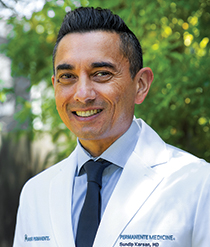
Sundip Karsan, MD
Another key role of the IBD clinical network has been to develop additional IBD care guidelines for special circumstances. One of these was the COVID-19 pandemic.
“This was one of the most challenging times of our institution’s history,” says TPMG gastroenterologist Sundip Karsan, MD. “Dr. Velayos sprang into action, creating and leading an interregional task force to develop IBD care recommendations at a time when little was known about the virus.”
Much of this work was conducted with the support of the TPMG Delivery Science and Applied Research program’s Rapid Analytics Unit, which conducts quick-turnaround data analyses to address high-priority clinical questions.
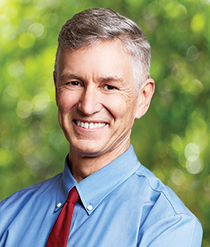
Douglas Corley, MD, PhD
“Patients and clinicians were concerned about whether immunosuppressive medications increased the risk of COVID-19 infection in people with IBD, or increased their risk of an adverse outcome,” says Douglas Corley, MD, PhD, TPMG chief research officer and gastroenterologist at KP San Francisco. “But within just a few months of the pandemic’s initiation, we were able to establish the relative safety of these medications, reassure our patients that their IBD medications could be safely continued, and publish the findings to help others.”
More recently, the IBD program has worked closely with TPMG leaders in maternal-fetal medicine, including Jeff Sperling, MD, and Kristi Van Winden, MD, to develop pregnancy guidelines, from preconception through delivery and beyond.
Dr. Rouillard says these guidelines have helped improve the comprehensive care gastroenterologists provide to their patients.
“IBD impacts all aspects of a person’s life, and this includes if and when to start a family,” says Dr. Rouillard. “Some IBD medications can decrease sperm mobility or sperm count. For patients who have had their colon removed and a J-pouch created, which is a surgically constructed internal reservoir that replaces the rectum, the procedure can potentially impact a patient’s ability to get pregnant or carry a child. These are just some of the factors our patients need to take into account as we help them understand their options.”
The pregnancy guidelines for IBD are now part of the KP Northern California clinical library. They help patients understand what they need to think about prior to conception, and guide both patients and clinicians on how to address IBD flare-ups that may occur, as well as what to plan for during each trimester to achieve the best outcomes.
Introducing biosimilar medications
Under Dr. Velayos’ leadership, the CCAB also played a pivotal role in bringing newly-approved biosimilar medications for IBD to KP Northern California — and beyond. Biosimilars are a less costly alternative to brand-name biologic drugs, which have become a mainstay of IBD treatment. Although biosimilars are similar in concept to generic drugs, they differ in important ways. Generic drugs are exact chemical copies of brand-name medications, containing the same active ingredients in the same dosages. In contrast, biologic medicines are derived from living organisms, which means that a biosimilar medication cannot be an exact replica of the original drug. But they are highly similar products, with no clinically meaningful differences in terms of safety, effectiveness, and quality.
Even so, patients with IBD and their physicians often had concerns about switching to these newly approved products — especially when a medication was working. To navigate this challenging therapeutic landscape, Dr. Velayos worked with the CCAB to develop a comprehensive, evidence-based approach to introducing biosimilar therapies that would increase confidence in the effectiveness of these medications. And he worked with other Kaiser Permanente regions to study the impact.
“I knew that we would need a long-term strategy to create confidence in biosimilars,” says Dr. Velayos. “If we were to just tell our patients we were changing their medications, we would not have been providing patient-centered care. So, we provided materials and counseling, and we did a slow roll-out so that we could study outcomes and share that with our physicians and patients.”
Dr. Velayos, along with fellow Permanente physicians from Northern California, Southern California, and Colorado, published the largest U.S. study on the real-world effectiveness of the biosimilar drug infliximab-dyyb in patients with IBD who had not previously taken a biologic medication. The retrospective cohort study, which included more than 3,000 patients, showed infliximab-dyyb was non-inferior to infliximab. This finding led national organizations, such as the American College of Gastroenterology, to change their treatment recommendations to include biosimilar options and helped expand the use of biosimilars in the United States.
“With a disease like this that has multiple medication options, people can be scared to change their medications,” Dr. Rouillard says. “Dr. Velayos recognized and set out to address this fear.”
From evidence to education
The coordinated effort to introduce biosimilar therapies included the development of educational materials. These include FAQs on biosimilars for patients and physicians that clearly explained the difference between generic and biosimilar medications, the requirements for a biosimilar to receive approval from the Food and Drug Administration, and the potential financial advantages of switching to a biosimilar therapy. Patients and physicians also received handouts and letters specific to each biosimilar medication as it was introduced that provided additional information on their safety.
“Dr. Velayos is a champion of using evidence-based medicine to guide the decisions we make,” says Dr. Karsan. “This guiding principle ensures there is buy-in at all levels, from administrative leaders to clinicians, and ultimately ensures our organization is providing world-class care for our patients.”
The procedures, protocols, and educational materials the IBD program developed now serve as models that other physicians can learn from.
“It is important to me that our patients understand that everything we do is evidence-based,” says Dr. Velayos. “Because of how we did this, we have our patients’ trust. They understand we are not switching to save money but to improve access, and that we have the data to support that.”
A comprehensive research agenda
The research on biosimilars is just one example of a comprehensive clinical and epidemiologic research program Dr. Velayos has fostered. Over the past eight years, TPMG gastroenterologists have led and co-authored over 60 research papers, guidelines, and conference abstracts in leading journals and conferences. Dr. Velayos also regularly presents on the IBD program’s development and successes at regional, national, and international conferences and meetings. These presentations highlight the ways an integrated health system with extensive clinical practice data variation can lead to new insights — on subjects ranging from the natural history of IBD and clinical care pathways to colon cancer prevention in people with IBD.
Some of this work was showcased in May at the American Gastroenterological Association Digestive Disease Week meeting, where Dr. Velayos presented findings from two studies funded by TPMG Community Health. One study investigated variance in adenoma prevalence at colonoscopy in patients with IBD; the other focused on neoplasia incidence after a negative colonoscopy in IBD patients. Both have the potential to improve colorectal cancer surveillance recommendations for not only KP Northern California patients, but also IBD patients worldwide.
A study published in 2023 in the American Journal of Gastroenterology is another example of how KP Northern California’s size and electronic health records improve care for patients with IBD. This retrospective cohort study, led by TPMG gastroenterologist Liat Fine, MD, with Dr. Velayos as senior author, demonstrated for the first time that a nutritional screening tool applied to the electronic health records of IBD patients could identify patients at high risk of malnutrition. The study also showed that malnutrition status was significantly associated with risk of blood clots, IBD-related surgery, and IBD-related hospitalizations.
New opportunities in research
There will be additional opportunities to grow this evidence base when Dr. Velayos becomes one of six new members to join the fourth TPMG Physician Researcher Program cohort in August. The program provides a framework for physicians to work with research scientists at the KP Northern California Division of Research to conduct the type of large-scale research studies that drive improvements in care throughout the organization.
The IBD program is also set to benefit from a new effort being led by the KP Northern California Clinical Trials Program to get more physicians involved with clinical trials, as well as expand the number and type of trials available to patients. Dr. Velayos has already established a clinical trials group for TPMG gastroenterologists, and he is currently leading a multicenter, randomized double-blind trial of a new therapy for patients with moderate to severe ulcerative colitis and Crohn’s disease.
“As a population-based program, we see the entire spectrum of inflammatory bowel disease, from mild to severe,” says Dr. Velayos. “This gives us the unique opportunity to take part in clinical trials for patients who are first starting on therapies, as well as clinical trials for patients who have already been on multiple therapies. Up next will be exploring novel ways to use our electronic medical records, with patients’ consent, to identify who may be eligible for these clinical trials.”
A culture of mentorship
TPMG gastroenterologists say that Dr. Velayos and members of the regional IBD clinical network have played an important role in their personal and professional development.
“We are a large organization, and navigating it requires someone who can balance the interests of physicians, patients, and the larger systems in which we work to tease out a solution that feels good to everyone,” says Dr. Karsan. “Dr. Velayos has that knowledge and skill. He’s a leader’s leader. He has an uncanny ability to make people feel at ease and make you feel like your ideas matter. I know that many of us when faced with a question or dilemma think, ‘What would Fernando do?’ He is an incredible individual to have on your side.”
This culture of mentorship and IBD training extends to the gastroenterology fellowship program at KP San Francisco, founded by gastroenterologist Lyle Shlager, MD, and colleagues in 2019. Dr. Velayos is key clinical faculty, and gastroenterology fellows regularly spend time in his IBD clinic to learn about comprehensive IBD care and gain a strong foundation for their future careers.
“IBD care is such an important part of what a GI doctor does,” says Dr. Fox. “And here, unlike in most medical centers, our fellows are learning how to care for the entire spectrum of patients with IBD, from those with milder illness who are doing well to those who are the most complex.”
Looking ahead, Dr. Velayos hopes to continue to expand IBD research. “Our research allows us to tell our story and show others what we are doing here,” he says.
Work is already underway to create an IBD registry that will form the foundation for the type of large longitudinal studies KP Northern California is known for.
“This would be not only one of the largest cohorts of IBD patients in the U.S.,” says Dr. Velayos, “but also one of the most diverse, including large groups of Hispanic, Black, and Asian patients with the disease.”
But ultimately what matters most to Dr. Velayos and his colleagues is that the IBD program keeps its 26,000 patients at the center of all that it does.
“It’s exciting our work has reached a level of maturity that we now have a track record demonstrating our success,” says Dr. Velayos. “It’s hard to put IBD on the map, but we have been able to do that in KP Northern California because we have an entire community committed to elevating IBD care.”
This article originally appeared in Permanente Excellence, the magazine for physicians in The Permanente Medical Group.
Illustration: Russell Cobb



